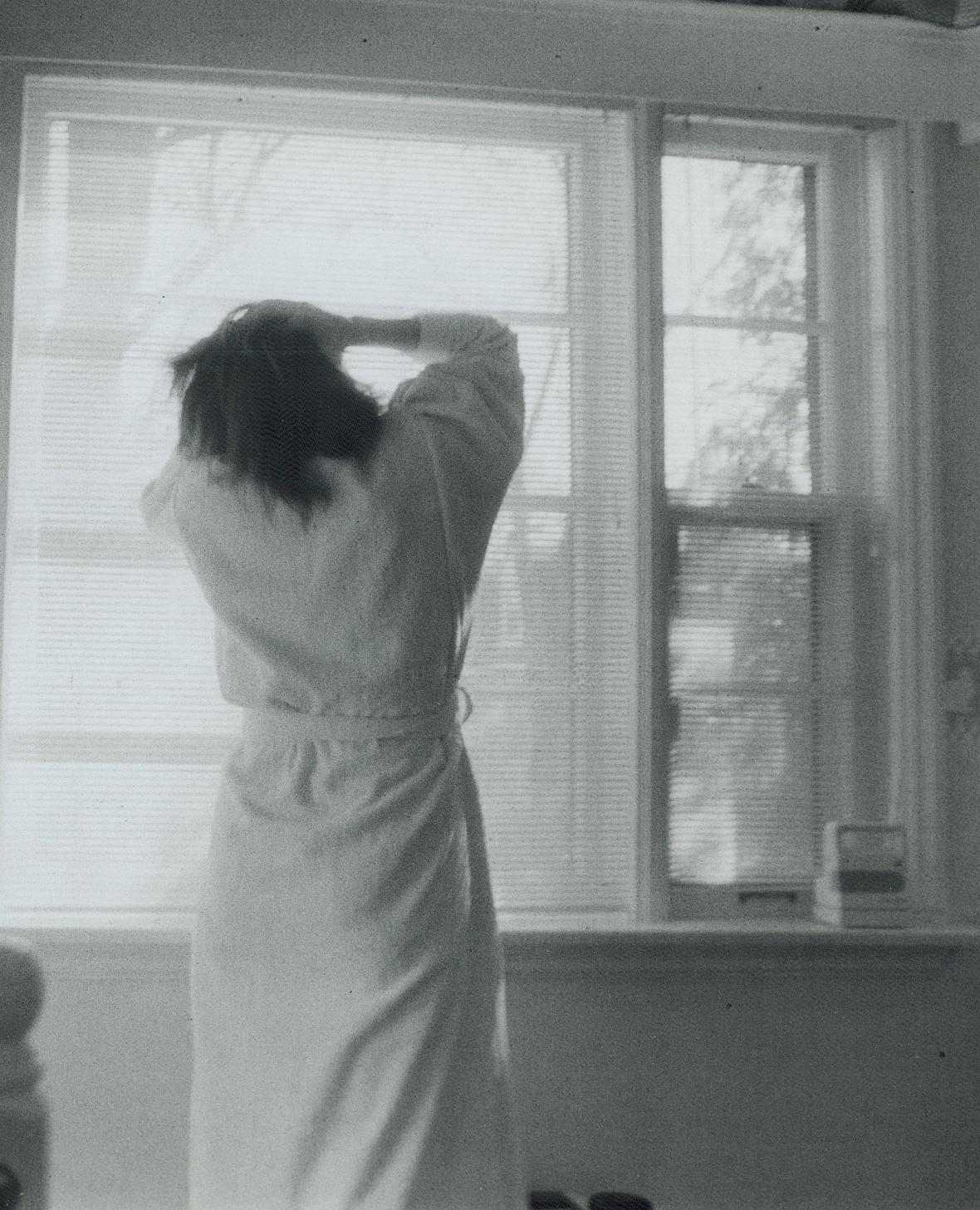Postpartum Depression Among Vietnamese American Mothers and the Cultural Barriers to Healing
The story was co-published with Nguoi Viet Daily News as part of the 2025 Ethnic Media Collaborative, Healing California.

Across the Vietnamese American community, many mothers quietly endure the emotional toll of PPD without proper diagnosis or support.
Photo by Patti Gower/Toronto Star via Getty Images
"At times, I thought about giving up everything, even abandoning the child I gave birth to with all my pain, to return to Vietnam. I even had suicidal thoughts…"
That is the confession of Thien Nguyen, a mother of a 4-year-old child, currently living in Garden Grove with her husband’s family. Two years ago, Thien was diagnosed with postpartum depression (PPD) and underwent therapy with a psychologist for about two years.
Thien’s story is not uncommon. Across the Vietnamese American community, many mothers quietly endure the emotional toll of PPD without proper diagnosis or support. Cultural stigma, lack of mental health resources, and language barriers often prevent women from seeking help—leaving them to struggle in silence.
Severe Symptoms of PPD
PPD is a serious mental health condition that affects women after childbirth, characterized by prolonged sadness, anxiety, and exhaustion that can interfere with a mother’s ability to care for herself and her baby.
According to Dr. Suzie Xuyen Dong, director of the Psychology and Behavioral Health Department at Southland Integrated Services, a health center in Garden Grove, PPD is different from “baby blues”—which are short-term mood swings and emotional sensitivity that many new mothers experience. PPD lasts longer, is more severe, and requires medical care.
PPD can emerge at any time within the first year after childbirth. It’s often triggered by a combination of factors—including hormonal changes, emotional stress, cultural pressures, and limited access to mental healthcare.
Dr. Dong further described PPD symptoms, including emotional and cognitive disturbances such as feeling empty, numb, disconnected from the baby, distant from others, excessive crying, anxiety, fear, and even thoughts of harming the baby.
She also mentioned physical symptoms like extreme fatigue, loss of energy, abnormal eating and sleeping patterns, and unexplained body pain.
Thien Nguyen shared her own experience with PPD, describing how her life became upside down, her health deteriorated, she lost the desire to live, no longer wanted to take care of her child, and even had suicidal thoughts.
She also revealed that she took antidepressants, but due to adverse side effects like excessive vomiting and drowsiness, she had to switch medications multiple times.
According to a 2017 CDC report, the prevalence of postpartum depression in 27 states in the U.S. was nearly 12%, meaning approximately one in nine new mothers experiences it.
According to 2021 data published in the American Journal of Obstetrics and Gynecology (AJOG), the prevalence of PPD more than doubled over the past decade, rising from 9.4% in 2010 to 19.3% in 2021—a 105% relative increase, based on electronic health records from Kaiser Permanente Southern California. Notably, Asian and Pacific Islander (API) women saw the steepest rise, with diagnoses jumping from 3.6% to 13.8%, marking a 280% increase.
This sharp growth in diagnoses reflects a concerning trend, particularly within California’s Asian communities. Nationally, API women are also more likely to experience PPD than their White, Black, or Latino counterparts, underscoring the need for more targeted research and culturally sensitive mental health support.
Other moms report similar experiences
Lan, a 28-year-old resident of Stanton with a 2-year-old child, recognized her PPD symptoms when her baby was around 15 months old.
"I felt increasingly sad, didn’t like hearing my baby cry, couldn’t tolerate noise. I was always exhausted and irritated," said Lan, who declined to reveal her last name.
She said that work-related stress was another major challenge, preventing her from properly taking care of herself and her baby.
She said that it wasn’t until her second pregnancy she experienced PPD symptoms. She initially believed that the sadness and fatigue would pass quickly, assuming it was just “baby blues.” However, she realized something was wrong when the symptoms persisted.
"At first, I thought I was just tired after work, so I got annoyed when my baby cried. But then, every time I heard crying, I had intrusive thoughts — like wanting to hit the baby … and these thoughts repeated over and over," Lan recounted.
Factors that can exacerbate PPD include a history of depression or other mental health issues, lack of support from family and loved ones, pregnancy or childbirth complications, high stress levels, difficulties with breastfeeding, persistent sleep deprivation.
Dr. Dong says that a lack of awareness of PPD can further widen the generational gap between family members.
"Many families assume that a mother’s symptoms are just hormonal changes after birth or baby blues, dismissing the warning signs. This lack of understanding leads to a lack of empathy and conflicts in childcare responsibilities," she explained.
Generational conflict in raising children
Thien Nguyen, 35, spoke about the cultural shock she experienced when she first arrived in the U.S. and had to adapt to a new life — on top of the shock of becoming a mother for the first time.
"My husband is an only child, and our baby is the first grandchild in the family. My in-laws are elderly, so they have a very different perspective on parenting and often criticize my approach. Since I didn’t receive much emotional support from them, I felt very alone," she said.
"Every time my baby cried, my in-laws would scold me. That period was an absolute nightmare. I was sleeping only two hours a day and felt completely overwhelmed," she said.
At that time, she didn’t know how to drive, so she was confined to the house all day, taking care of the baby, which worsened her feelings of isolation and depression.
"My in-laws cooked for me during postpartum recovery, but they followed strict confinement rules—no watery foods or soups, only rice with braised meat and dry foods for an extended period," she recalled.
She continued: "my mother-in-law even tried to breastfeed my baby herself. The doctor diagnosed my baby with PTSD since the baby refused to nurse from me, and after that, my baby stopped breastfeeding at just three months old."
The doctor advised that babies should only breastfeed from their mothers to prevent post-traumatic stress disorder (PTSD), as seen in Thien's baby.
Lan’s family also encouraged traditional postpartum confinement practices, such as not showering for several weeks after childbirth due to fears of catching a cold, and not going outside for a month to avoid exposure to wind. But her family was more flexible, allowing her and her husband to choose which traditions to follow.
Cultural factors that intensify PPD in Vietnamese women
Dr. Dong said that cultural factors play a significant role in PPD, especially in Vietnamese mothers, who are often raised to prioritize their families over their own well-being.
In Vietnamese culture, mental health issues are highly stigmatized. Many women feel pressured to appear strong and hide their struggles out of fear of judgment from family and community. Seeking professional help is sometimes viewed as shameful, resulting in many cases going unreported and untreated.
Traditional Vietnamese values emphasize sacrifice and resilience in motherhood. Women may feel immense pressure to follow strict postpartum confinement practices. If they fail to meet these expectations — especially Vietnamese American women without family support — they may experience guilt and inadequacy, worsening their PPD symptoms.
Vietnamese American women, particularly immigrants or first-generation individuals, also struggle to balance traditional Vietnamese customs with American societal norms. Language barriers, financial stress, and differences in parenting expectations can further increase the risk of PPD.
Limited access to mental health resources—including a lack of Vietnamese-speaking mental health professionals and financial constraints—often prevents Vietnamese American women from seeking proper treatment. Many resort to spiritual or herbal remedies instead of therapy or medication, delaying effective intervention.
Advice for mothers
PPD may last for years. Women with a history of mood disorders are more likely to experience more intense and long-lasting symptoms of PPD. Additionally, those who develop diabetes during pregnancy face a higher risk of developing PPD.
Right now, most doctors screen for PPD only within the first six months after childbirth. Extending the screening period could help identify more women who continue to struggle beyond that window.
Untreated PPD can seriously impact both mothers and their children. Research shows that children of mothers with untreated PPD are more likely to face developmental challenges, emotional and behavioral issues, and even long-term mental health problems.
Mothers who don’t receive treatment may struggle with ongoing depression, weight issues, substance use, difficulties in relationships, and challenges with breastfeeding.
Dr. Dong encourages mothers to practice self-compassion, stop self-judgment, and, most importantly, accept their emotions.
"Mothers experiencing PPD should talk to trusted supporters, such as family members, friends, or mental health professionals, to help recognize their own value," she shared.
Drawing from her own experience, Lan urges mothers to seek help from specialists and psychologists, and openly share their struggles with loved ones so they can receive emotional support.
"Experts can help untangle ‘mental knots’ and create a space where we can express our feelings. After five to six months of treatment, I felt a huge transformation and regained my strength," Lan said.
She also mentioned that after learning about her condition, her family offered more child care help, which motivated her to move forward.
Thien Nguyen, advises mothers to prepare mentally before childbirth, discuss parenting expectations with family, and open up to their husbands about postpartum mental health issues to gain understanding and support.
"Since I couldn't take antidepressants, my doctor recommended meditation and yoga, which proved very effective. Over time, my mind became clearer, and my depression symptoms greatly diminished,” Thien shared.
After a long period of therapy, Thien slowly regained her confidence. She can now drive her child to daycare every morning before heading to the beauty salon she owns.

This project was supported by the USC Annenberg Center for Health Journalism, and is part of "Healing California," a yearlong reporting Ethnic Media Collaborative venture with print, digital, podcast and broadcast outlets across California.
